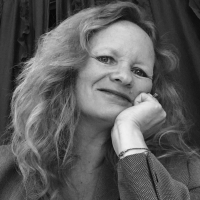Addressing Burnout: The Problem with Passion

At the end of the day, we all want to go home feeling inspired and fueled by a day of purposeful engagement and passionate work. But what if we are already at home? And how does one remain passionate when their work exists in the vague and intangible realm of the digital world? We all experience ebbs and flows and then abruptly, a wall.
So, what is burnout? According to WHO it is characterized by three dimensions: 1) feelings of energy depletion or exhaustion; 2) increased mental distance from one’s job, or feelings of negativism or cynicism related to one’s job; and 3) reduced professional efficacy.
Working in philanthropy provides a forum for purpose-driven work that can do more to significantly increase your risk of burnout. Why? Because despite there being benefits to doing what you love, data show that being passionate about your work can also lead to a higher level of stress and feelings of low self-efficacy. Mission-focused executives, non-profit employees, teachers/principals, nurses, and physicians are some of the people most at-risk for burnout.
I want to reach out to the community and ask what are some ways we can prevent ourselves, colleagues, and loved ones from exhaustion, fatigue, and burnout? Research shows that setting boundaries is a good first step in better serving yourself. If you are a leader then empathy is the first phase in preventing burnout in your team. What strategies are you employing to minimize burnout for both yourself and those around you?
Comments
-
Great questions @karlkaiser. As you know we are looking at this issue at Foundant and working towards ways to continue to and to better suppoort our team. I'm looking forward to hearing from our community about what they are doing.
1 -
Creating a routine! Having set days where I workout at the crack of dawn (so I'm forced to go to bed at 9 PM the night before), cooking more meals from home, and coming into the office most days so I'm not completely distracted, like I get when I try to work all day at home. I'm also working harder on accountability amongst my friend group so we get outside for coffee in the park, trail runs around town, short after work mountain bike rides (soon to be midweek Bridger laps and headlamp ski tours), or just beers in someone's backyard. Also working on resting when I need to, taking naps, and eating popcorn for dinner sometimes.
4 -
For all my podcast peeps out there, a fellow CSM at Foundant (Thanks @JoshuaBernard!) introduced me to Work Life with Adam Grant, which is excellent. There was a recent episode discussing burnout in the workplace that is a really easy listen if anyone is interested!:https://www.ted.com/talks/worklife_with_adam_grant_burnout_is_everyone_s_problem?language=en&referrer=playlist-worklife_with_adam_grant_season_3
4 -
I don't think passion is the problem; a lack of progress causes burnout. Passionate people get exhausted because they are doing the same work over and over with little change. They are hyper-focused on the mission but forget about their vision. Actualizing one’s vision is the ultimate goal.
How many have forgotten their vision? They get stuck doing the same thing they've always done, without innovation and growth. You can see why not making progress will deplete your energy, increase cynicism, and reduce professional efficacy. A stagnant organization will impede the growth of its team. Individuals can also become stagnant when they don't grow and evolve, even in a learning-friendly, growing environment.
Preventing burnout starts with the leader infusing the team with an innovative mindset and growth opportunities. If our organizations aren't doing this work, we need to persuade them in this direction. If we aren't doing this for ourselves, we need to start. Books, interactives, new twists on old programs, novel ideas, fresh conversations, deeper relationships, more focused goals, and daily progress to actualizing our vision.
5 -
This is an interesting and relevant discussion! Not long ago, I embarked on a journey with grant professionals Johna Rodgers and Bethany Planton to determine if burnout in the grant profession is indeed a thing. We did some research, asked some questions, and put together some resources. Both the Grant Professionals Association and Foundant allowed us a platform to share our findings.
Blog - https://resources.foundant.com/blog/can-you-identify-burnout
Grant Professionals Association Journal - https://gpassoc.informz.net/GPASSOC/data/images/Journal/2020_GPA.Journal10.20.20.pdf?fbclid=IwAR2N7BRWMKFM74X_gAjnAoiLps0CNdlw12_-10jlgSEA_rO-t0jwHAyUzLo
But our work is not complete! There is still much to be done and we look forward to working with the grant professional community as a whole to find ways to identify and deal with the conditions that contribute to burnout. In the meantime, keep supporting one another. No one solution fits all, so I encourage you to keep searching for what works for you.
5 -
These are all great replies and I think the discussion continues to be relevant as we continue through this tumultuous year and into the next. As we persevere, I think burnout is becoming a catch-all for complex emotions—grief, stress, loneliness—that most of us simply are not accustomed to in the workplace, at least at the scale we’re seeing now. I saw a quote that I liked recently regarding how we cope and how we talk about it with our colleagues "… having these open personal conversations and linking them to work and to organizational health and performance matters. It mattered before the pandemic, but it matters more than ever now."
Keep discussing, acknowledging, and supporting each other!
3 -
The Happy, Healthy Nonprofit by Beth Kanter and Aliza Sherman has some great information related to burnout both individually and as a sector.
4 -
-
Passion that is unsupported led to burnout for me. I had to be my own support when my team went through some major changes and left me out of the communication loop. It took some time to work through the loss of passion for my job and I had to just do the job for a while. I am in a "wait and see" phase as I decide whether or not to move on to a new position.
3 -
More great resources to help you manage the symptoms of burnout! I recommend Redefining Anxiety by Dr. John Deloney.
2 -
"Feelings of negativism or cynicism related to one’s job" was the number one reason I am no longer at my previous job. Although I have been working very long hours at my current job, I haven't experienced burnout in the same way. The difference is my current supervisor is continuously both showing his appreciation for my job performance and providing opportunities for professional growth. Also, he is very observant so that when I do get exhausted from overworking too much, he will give me 2 or 3 authorized days off (without having to use vacation or sick leave). He also gave me supplemental pay for doing my former coworker's job after he suddenly passed away. Knowing you are appreciated, valued, and compensated for your efforts is a strong preventative measure to counter burnout!
2 -
Those feelings are why I am now on my way out of my current job of 15 years. I was in the "wait and see" mode in June, now it's more "waiting to go." I am planning on taking a couple of months to reset and repair myself before even looking for a new position. Sounds like your current supervisor really gets it. I have never been compensated for taking on another person's job. I even delayed my own plans to sell my house and move by several months (which cost me quite a bit) to cover for a coworker, with a very high work load, that went on an unexpected, lengthy maternity leave.
0 -
Came across this article and thought I'd share! 💗
Kara Adams, M.Ed., CAE (she/her/hers)|Community Manager|kara.adams@foundant.com
Headquartered: Bozeman, MT| Remote Location: Chicago, IL | Direct: 312-802-1374 |www.foundant.com|
1













